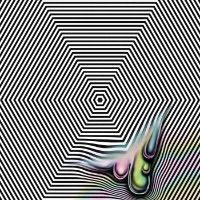- Digital
Sadaf
History Of Heat
Blueberry Records
- Cat No: BBRLP002
- Release: 2019-07-12
- updated:
Track List
-
1. Sadaf - L'Enfer en Pleine Lumière
03:43 -
2. Sadaf - Apparition
04:13 -
3. Sadaf - History of Heat
03:53 -
4. Sadaf - Animal
03:42 -
5. Sadaf - Perfection
05:18 -
6. Sadaf - Tiny Engine
04:09 -
7. Sadaf - Ditectrice
02:43 -
8. Sadaf - Feed Him
02:30 -
9. Sadaf - The End (War Text)
04:36 -
10. Sadaf - Guttermoon
03:58 -
11. Sadaf - Wrong God
03:08 -
12. Sadaf - Cinéma Vérité
02:14
24bit/44.1khz [wav/flac/aiff/alac/mp3]
Through different chapters, we follow the heroine of our story from the initial desire to love, the sensual pull which oscillates between the grotesque and sacred longing of the flesh (‘L’Enfer en pleine lumière’ translates to ‘Hell in plain sight’)...to the sudden ghostlike appearance of the Other (Apparition) as a projection of the dream. We enter into the spiritual, the seeing visions and the blindness of love. ‘Animal’ speaks of instinct, the smell of the beloved, already the deconstruction of the divine back into the realm of the physical. The title track ‘History of heat’ sings the hesitation of love, the precipice of openness and the invitation of the contract: Dance with me... (This is where the metaphoric marriage is forged). In ‘Perfection’, the pressure which keeps the relationship on the pedestal of the absolute stunts and paralyses love. Unrealistic expectations of the self and the other person creates the push and pull of the not wanting what one wants and the fear to get what one has been asking for. ‘Tiny engine’ speaks of mechanical attachment, attachment to the lover as habit, as a second nature, and the call to the other person as a magnet. In ‘Ditectrice’, the madness and the folly of separation spawns war and confusion. It is the violent refusal to live without the other... the pleading with god. ‘Feed him’ follows with resignation and exhaustion. Love has become the beast of burden who eats away at itself insatiably. ‘War text’ brings forth the devastation, the peace treaty and finally the metaphysical Divorce. In ‘Guttermoon’, the vita contemplativa begins, the blood starts to cool, the scene is a ghost town. ‘Wrong god’ similarly winds down as an ode to remorse and mourning. Finally, ‘Cinema Verité’ closes out the album with a mistrust of ‘reality’: the heroine becomes a philosopher, she becomes an artist... did the relationship ever exist or was it a projection “In front of a movie screen” ?



